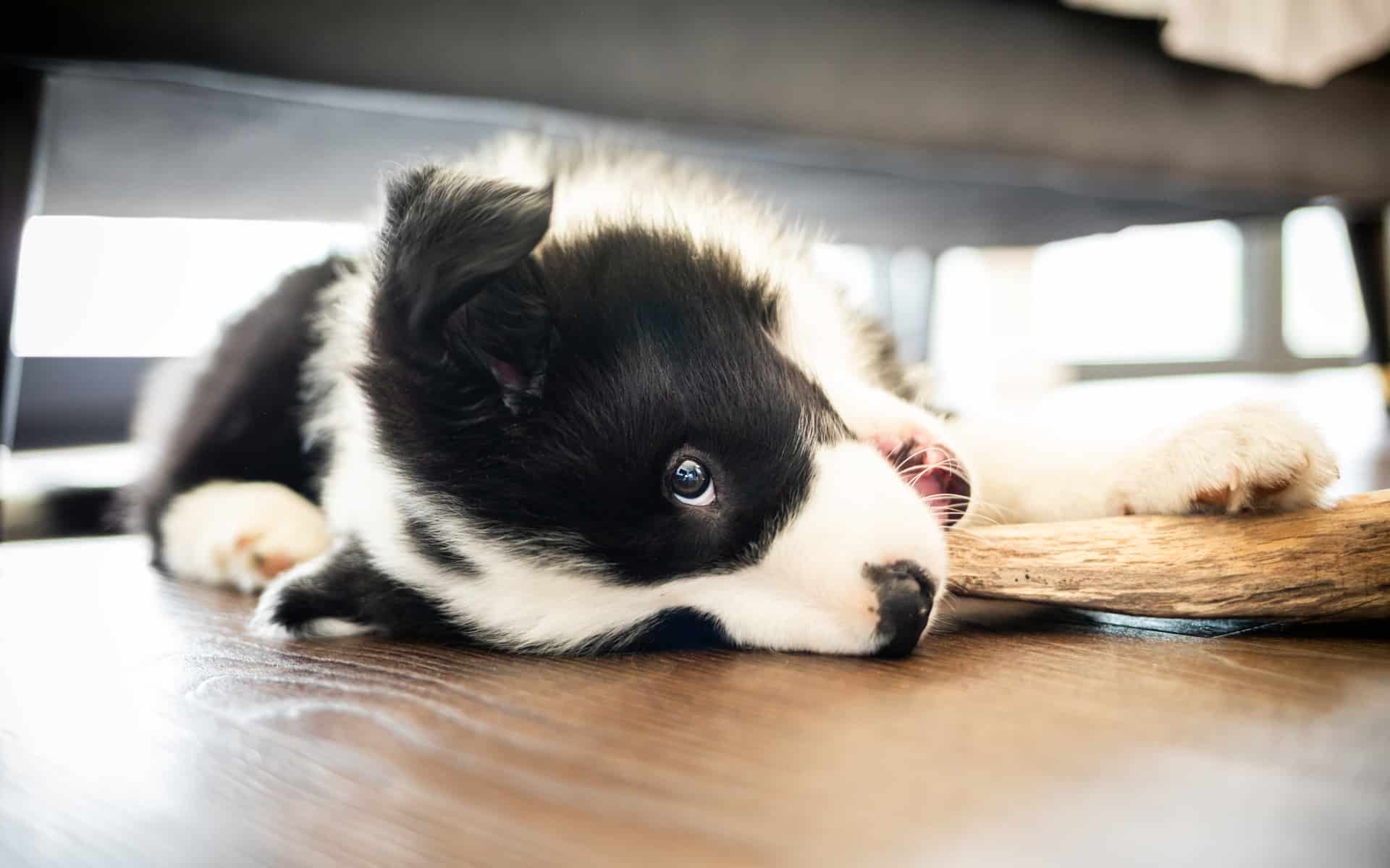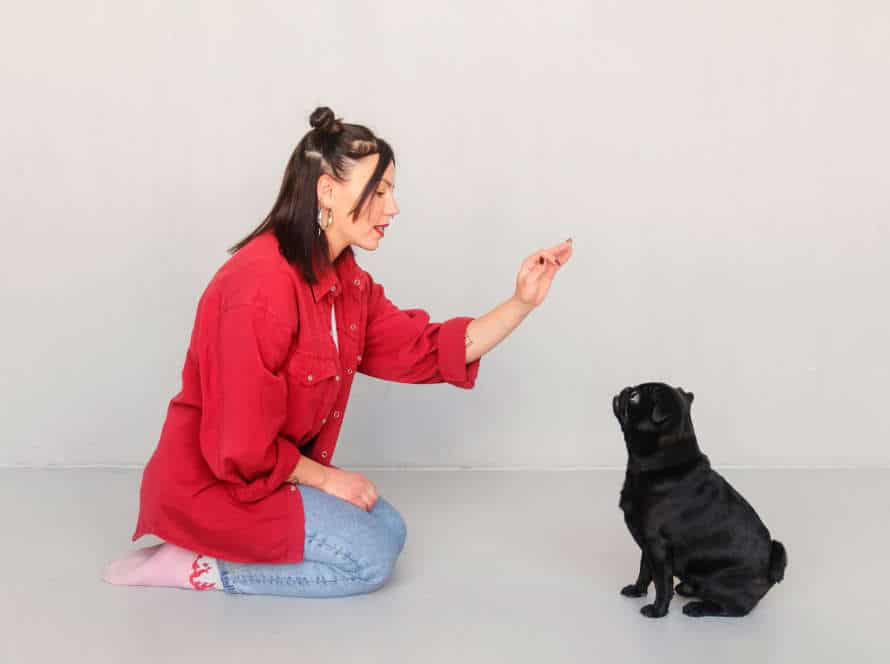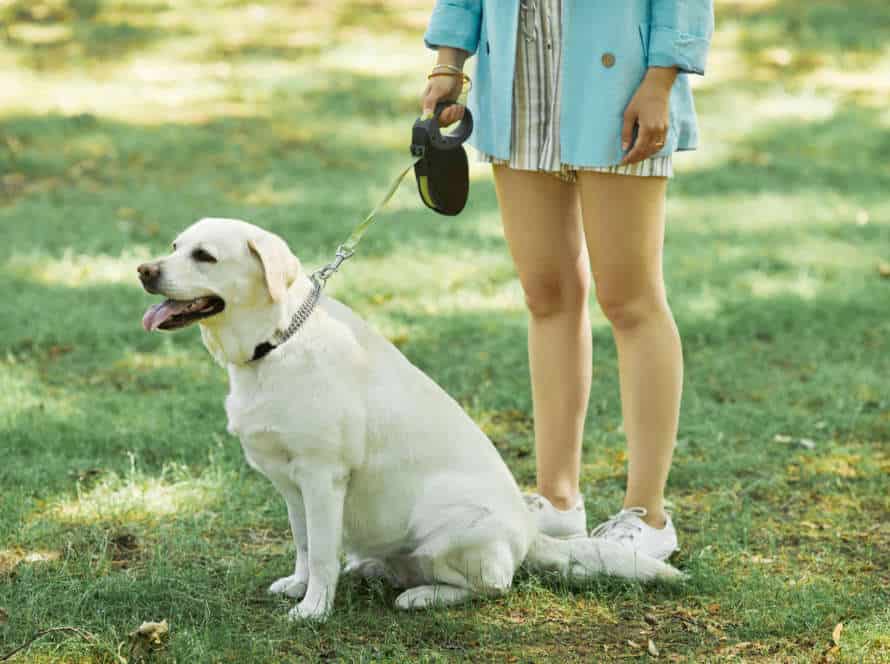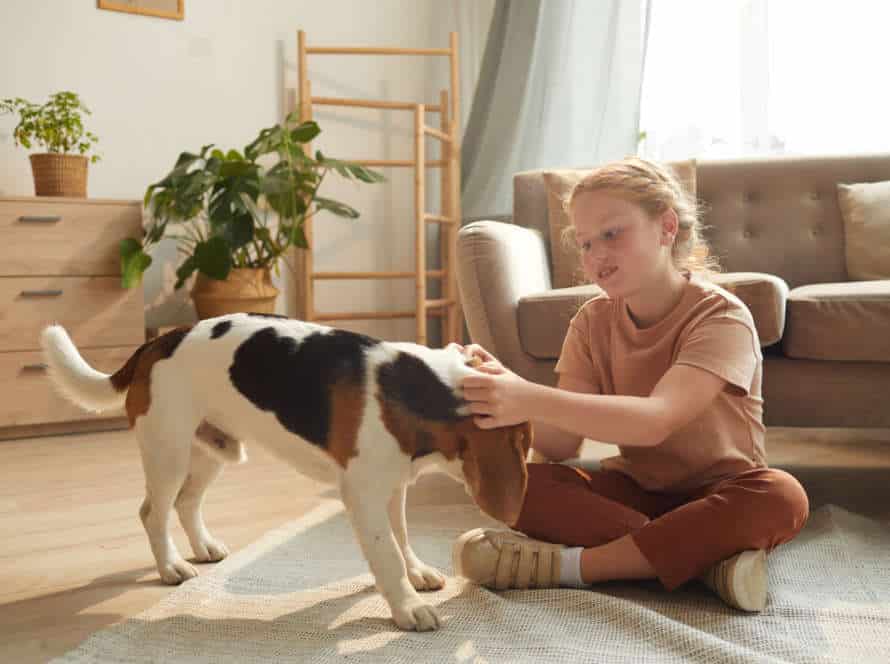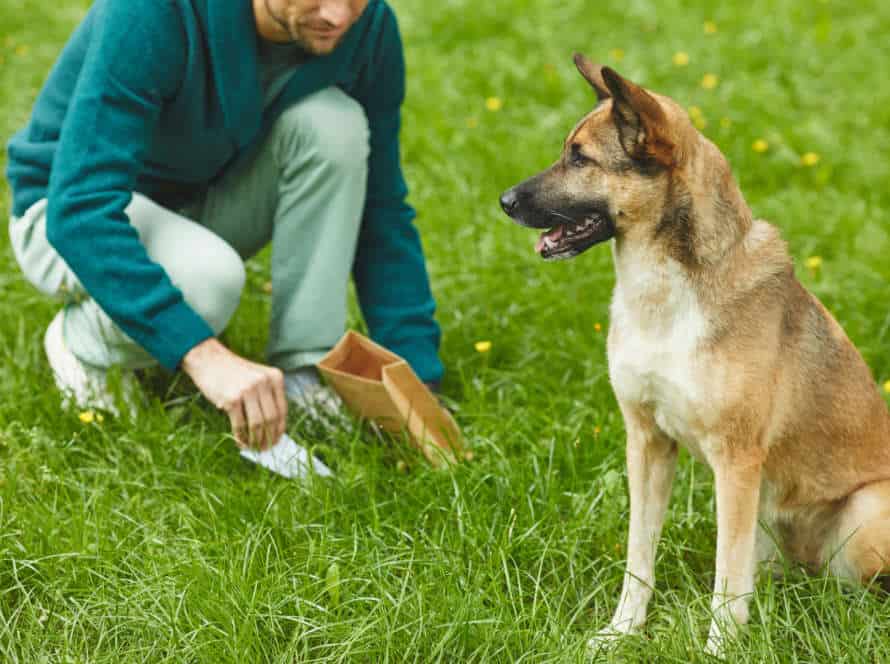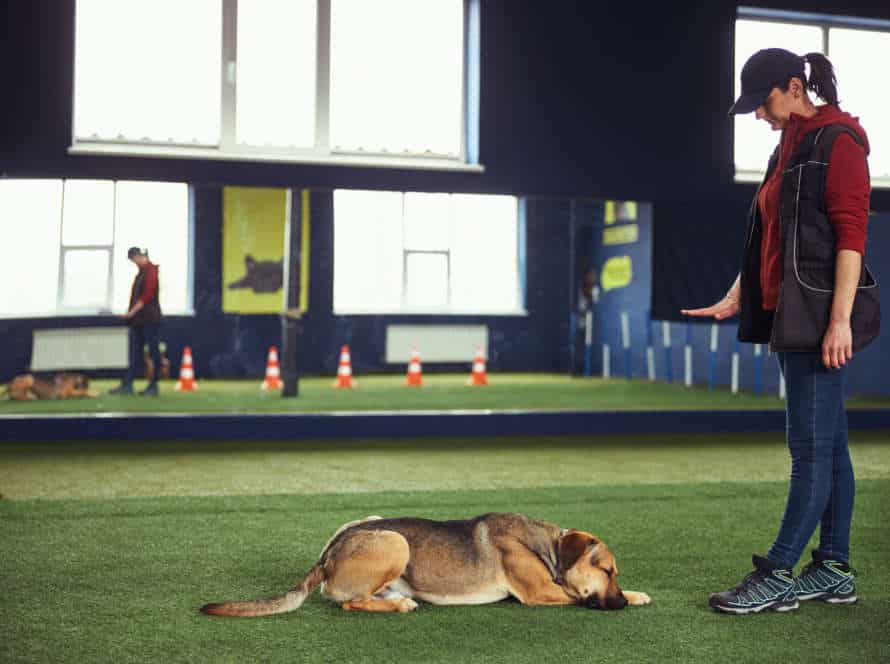Celebrating Puppy Biting Training Success: Acknowledging Your Puppy’s Progress
It’s a must to recognize your pup’s progress in order to celebrate their success during their puppy biting training! Here are some ideas:
- Verbal Praise: Give positive reinforcement words like “good job!” “well done!” and “great progress!” when your pup does something good.
- Treats: Treat your pup when they do better during their training.
- Play Time: Reward your pup with some playtime when they make progress.
- Breaks: Take short pauses so your pup can rest and understand what they learned.
By recognizing your pup’s progress, you’re reinforcing good behavior and deepening your bond with them. Pro Tip: Consistency is key to successful puppy biting training, and acknowledging progress helps keep you motivated and focused on the end goal–a well-trained and happy puppy!
Understanding Puppy Biting Behavior
Puppy biting can be tough to handle. But, with proper training, it can be managed. To stop the biting, you need to understand why it happens. Identify the source and take steps to discourage it. Let’s look into puppy biting and what you can do to help your puppy behave better.
Why do puppies bite?
Puppies bite and chew for various reasons like teething, curiosity, boredom, anxiety, and excitement. But too much of it can cause problems. So, it’s essential to train them not to bite. Here are some tips:
- Use a firm “no-bite” command when they bite you or others.
- Provide chew toys, bones, ropes, and balls, and praise them when they use them.
- Reward gentle play and discourage rough play.
- Positively reinforce good behavior and acknowledge progress.
Remember: Consistency and patience are key! Don’t punish, as it can lead to fear and aggression. Instead, use gentle and positive methods to redirect their biting behavior.
Different types of puppy biting
Puppy biting is a natural thing for young pups to do. They explore their surroundings through their mouths! Here are the four different types of puppy biting behaviors you should know:
- Mouthing: A gentle form of biting where they put their mouth around an object without pressure.
- Play biting: A more intense form of mouthing when they nibble or bite harder during play.
- Teething: When their teeth start coming in, it can cause discomfort, and make them want to chew and bite.
- Aggressive biting: When they growl and bite hard, it could be fear or aggression.
It’s important to celebrate your pup’s successes in biting training. Make sure you praise and reward them for good behavior. Also, keep being patient and consistent with their training. Plus, remember to socialize your pup regularly, to prevent biting from fear or anxiety.
When does biting become problematic?
Puppies bite naturally, but it can be an issue if they don’t know when to stop. To understand and address puppy biting behavior, you must first understand why they do it. Puppies bite to explore, play, and learn.
Teaching them the right way to bite is essential. Reward them for good behavior such as using toys instead of fingers, redirect them when they bite incorrectly. This will help create good habits and reduce bad ones. Pro Tip: Consistency and patience will make a difference in training puppies and reducing biting.
Strategies for Puppy Biting Training
Impossible to break? Nope! With patience, persistence and consistency, puppy biting can be tamed. Let’s explore some successful strategies for training. Reward your pup for progress and show them you appreciate their success. Let’s dive in and find out how!
Begin with socialization and positive reinforcement
Puppy biting can be a nuisance, but it is part of their natural development. The best way to train is with socialization and positive reinforcement. Here are some tips:
- Socialize your puppy with people and other dogs early on.
- Use treats and compliments to reward good behavior and discourage biting.
- Offer them toys and chews for them to chew on instead.
- Don’t use physical punishment or negative reinforcement, this can lead to fear and aggression.
- Remember, puppy biting takes time.
- Celebrate progress and encourage good behavior.
Use redirection and engage in playtime
Stop your puppy’s biting by redirecting their behavior and having playtime with them. Acknowledge and reward them when they do good. Here are strategies that can help:
- Give them objects to chew on, instead of skin.
- Praise or give treats when they act good.
- Play with them to keep their energy up.
Celebrate each success and show your pup you care. This will motivate them to keep being good and build your bond.
Use verbal correction and timeouts
As an owner of a pet, one of the biggest struggles is when your pup bites. To manage this, you can use verbal correction and timeouts.
Verbal correction is when you clap your hands or say “no!” every time your puppy bites. This tells them that it’s not okay.
Timeouts are when you leave the pup alone if it bites you. You walk away and ignore them for a few minutes. This way, they understand that biting makes you go away.
It’s important to recognize your pup’s achievements and reward them when they do something good. Give them treats or love, which will motivate them to learn.
Acknowledging Your Puppy’s Progress
Training your pup not to bite is vital. Seeing progress can be gratifying. Acknowledging progress is key to celebrating success in puppy biting training. It also helps motivate your pup to keep going. Here are some ways to acknowledge their progress:
Monitoring progress during training
Puppy training needs monitoring. It helps you see what they’re good at and what they need help with. Here are ways to watch your pup:
- Track how often they do behaviors, like biting furniture.
- Note situations that lead to inappropriate behavior, like when they’re too excited.
- Record milestones in a log or journal.
- Celebrate each success with praise or treats.
Remember, training takes time and patience. Monitor their progress and bond with them. This will help them grow into a well-behaved adult dog.
Celebrating milestones in your puppy’s biting behavior
Puppy biting and mouthing can be a challenge. But, it’s important to recognize progress as your pup learns to control their behavior. To show appreciation for their progress, you can:
- Give treats, praise and cuddles for good behavior.
- Give a new toy or game as a reward for following commands.
- Plan a special outing like a park or pet store trip.
Training a pup takes time and patience. Celebrating their progress builds a strong bond with your pup.
Developing a maintenance plan for your puppy’s progress
For your pup’s growth, creating a plan for maintenance is a must! Here are some tips to begin:
- Set specific, quantifiable, achievable, relevant and time-based goals.
- Schedule and track the frequency and length of each training session.
- Reward good behavior with positive reinforcement, and ignore or redirect misbehavior.
- Continuously assess progress and make necessary changes to the schedule.
- Celebrate each success with acknowledgment and rewards.
With a good plan, your pup will learn, develop, and be a content part of the family.
Common Mistakes in Puppy Biting Training
Pet owners are familiar with puppy biting being a hard training issue. But, by being patient and consistent, you can make progress in stopping it. However, there’re mistakes that can be made. Let’s see the most common ones made by new pet owners.
Using physical punishment
Using physical punishment in puppy biting training is ineffective. It can create fear and aggression in your pup. Positive training techniques can help. Here are some common mistakes to avoid:
- Rough play. This can promote biting.
- Mixed signals. Be consistent in training. Don’t confuse your pup.
- Yelling or hitting. Never do these. Fearful and aggressive behavior could result.
- Lack of socialization. Get your pup used to people and other dogs from an early age.
Focus on positive reinforcement. Redirect biting to chew toys. Use treats to reward good behavior. Give verbal praise when your pup makes progress. Acknowledge their success with consistent training, positive reinforcement, and patience. Celebrate!
Being inconsistent in training
Inconsistency in puppy biting training is a common mistake that can hinder success. Puppies need clear and consistent guidance. Here are some tips to avoid it:
- Establish clear rules and stay consistent.
- Use positive reinforcement techniques. Reward good behavior and ignore or redirect bad behavior.
- Be patient and persistent. Training takes time and effort.
Celebrate successes too! Acknowledge progress, give praise, treats and playtime. This builds puppy confidence and trust. Remember, consistency is key for puppy training and celebrating small successes leads to long-term behavior goals.
Failing to address underlying issues that cause biting behavior
One mistake when training puppies to not bite is not addressing the causes of the biting. Reasons why they may bite include:
- Teething – 3-6 months old puppies may bite to ease discomfort as their teeth grow. Provide chew toys and cold treats.
- Lack of Socialization – puppies not exposed may bite when meeting new people and animals. Expose and supervise.
- Fear or Anxiety – biting may be a defense mechanism. Identify triggers and desensitize the puppy.
Pro Tip: Consistency is the key. Reward good and avoid reinforcing bad habits. With patience and practice, your pup can learn to control biting and you can celebrate progress.
Seeking Professional Help
Taming a pup can be tricky. Even more so if it’s biting. Biting is normal for puppies, but it can be a problem if it’s left unchecked. If you’re having trouble with puppy biting training, consider seeking help from a professional. Here’s how they can assist you.
Knowing when to seek professional help
Puppy biting is very common and can be trained with positive reinforcements. But when do you need professional help? Here are some signs:
- Aggressive biting? If your puppy is breaking skin or leaving bruises, get help immediately.
- Uncontrollable biting? If you’ve tried all the methods and it continues, seek professional help.
- Fear or anxiety-related biting? Address the underlying issue with help from a pro.
- Pro tip: Every pup is different. When in doubt, get professional help.
Finding a qualified dog trainer to help with biting issues
Getting help from a skilled dog trainer to tackle biting is essential for managing aggressive behavior in puppies. Here’s what you need to do to find the right one:
- Referral: Ask people you know – like family, friends, or your vet – for suggestions of certified trainers in your area.
- Research: Check their qualifications, experience, training techniques, and success rate by exploring their websites, social media, or reviews.
- Consultation: Arrange a meeting with the trainer to talk about your puppy’s biting issues, goals, and approach. Don’t forget to ask questions about their philosophy, methods, and expectations.
- Follow-up: Acknowledge your pup’s progress and reward them with treats, compliments, or playtime after each session. Remember to practice lessons at home and go for follow-up sessions if needed.
Pro Tip: Opt for trainers who use positive reinforcement, have a certification from a recognised body, and provide continuous assistance and resources.
Using professional services as an additional resource for training progress.
Using pro services for training can be useful, especially when teaching a puppy not to bite. Consulting a dog trainer can help the process and make sure your puppy learns the right behaviour. Here’s what to consider:
- Credentials – Check if the trainer is certified and has experience with pup training.
- Methods – See which methods the pro uses and if they fit with your values.
- Cost – See if the training sessions are in your budget.
Celebrating your puppy’s biting training success is a big win for both you and your pup. Acknowledge their good behaviour – it’s a great motivator. Pro Tip: Keep training short and consistent for best progress.
Frequently Asked Questions
1. What is puppy biting training?
A: Puppy biting training is the process of teaching your puppy to control their biting behavior and interact with humans and other animals in a gentle way.
2. How long does it take for a puppy to learn not to bite?
A: Each puppy is different, but typically it can take anywhere from several days to several weeks for a puppy to start controlling their biting behavior.
3. What are some effective techniques for puppy biting training?
A: Some effective techniques for puppy biting training include redirecting their attention with toys and treats, teaching them to use a soft mouth while playing, and consistently discouraging biting behavior.
4. How can I acknowledge my puppy’s progress in biting training?
A: You can acknowledge your puppy’s progress in biting training by praising them when they exhibit good behavior, using positive reinforcement techniques such as treats or toys, and keeping track of their progress in a journal or log.
5. What should I do if my puppy continues to bite even after training?
A: If your puppy continues to bite even after training, it may be necessary to seek advice from a professional trainer or behaviorist to address underlying issues or develop a more effective training plan.
6. Is it important to celebrate my puppy’s progress in biting training?
A: Yes, it is important to celebrate your puppy’s progress in biting training as it can help boost their confidence and reinforce good behavior, ultimately leading to better relationships and interactions with humans and other animals.

